It Takes a Village to Raise a Hero
No one is self made. Not really. Everyone builds on what they have been given. Or what they are willing to take. Billi 99 is the story of a community, the good and the bad, the heroes and the villains.
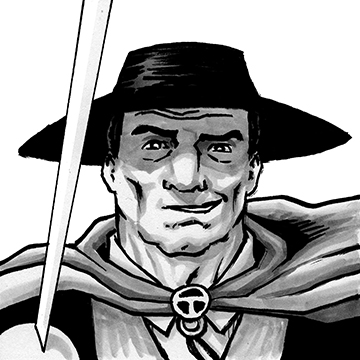
The Toleado
Ray Chadam was antiquing when he found a Toledo rapier which was at least 500 years old. The seller told him it came over with a Spanish Conquistador, but that its provenance could not be authenticated. All his childhood, Ray had loved heroic sword fighters. The Musketeers, Pirates, Robin Hood, but most of all, he loved Zorro.
Raised by his fortunate family, Ray was taught that a gentleman is generous, kind, and strong. They had a deep family history of shielding those who needed it.
That sword inspired Ray. He had a costume made for himself, and at night he walked the streets of Sulter looking for problems he could bring his influence to bare upon. In truth, it was a dalliance. He would observe and send in the cavalry. The police, programs, upgrades. He called himself Toledo, after his sword. Billi thought this a foolish enterprise. Now Billi is that fool. On his deathbed, she swore she would not let his legacy die.
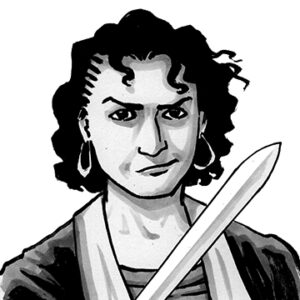
Toleado II Billi Chadam
From rags to riches to rags. Former heiress and ambassador to great charities around the world, Billi is thrust back onto the street when her father dies under suspicious circumstances. She is fortunate to have more street smarts than she was ever credited with having. She assumes her father’s costume and sword. Billi moves between the world of the high born, and those who are trapped in a ghetto cordoned off with a huge wall.
Whenever one person stands up, it helps others to do the same. Ray Chadam taught her that. She trusted him because she had been abandoned in a dumpster as a child, and he pulled her up and out of that dumpster. For Billi, life is about taking responsibility for herself and others.
When Billi is chased back onto the streets, she tries to uphold her father’s code and finds it difficult without the power and resources of her father’s generation. It is like trying to be a superhero with only blood and bone and inner strength. Inner strength will fail a mere human, from time to time. Courage is not about being infallible, it is about getting back up. Even when she fails, even when she loses hope, Billi gets back up – inspiring those around her to do the same. Billi lives on the rapier edge of dark and light, leading upward and outward, no matter how hard it gets.
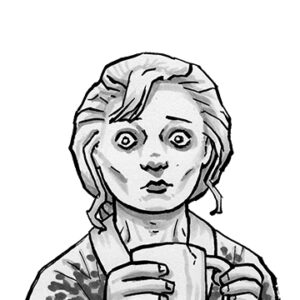
Karen
Karen is Billi’s best friend. She was a social worker, now unemployed. She was an anchor in her community, a woman with purpose and pride. Billi knows her from charity work, which Chadam International no longer supports. She is facing homelessness with her two children.
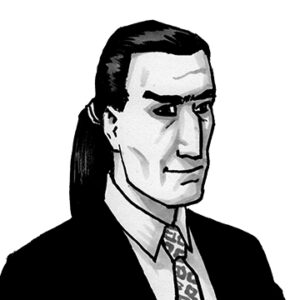
Anunzio Ingrionelli
Anunzio is Bill’s friend, her lover, but not her protector. He respects her too much for that. And, though he admires what she is trying to do, he thinks her methods are naive. For Anunzio there are three kinds of power, government, money, and individual. As far as he is concerned, individuals do not stand a chance without finding a way to bully those who abuse their power. Anunzio is a last-generation mafia son. His generation is supposed to go legitimate, but he returns to crime to save Billi’s cause.
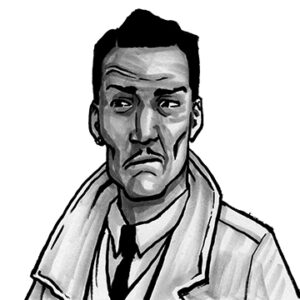
Chief Andrews
There are some places in the country where police earn little over minimum wage, so they are allowed to moonlight as legitimate security officers. Chief Andrews and his men have worked for CI occasionally, but now that Ray Chadam is dead, Chief Andrews tries to hold on to his integrity and that of his men. Between Anuzio, Andrews, and Billi, they establish an uneasy triumvirate of strength.
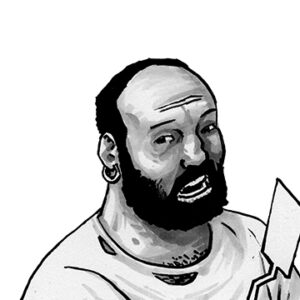
Unk
Before he poured 2500 degrees of molten steel into railroad tracks, Unk had worked as a short-order cook. Like many of us, his life has slid backward to where he started. He considers it a blessing that he is able to provide cheap food to his neighbors. Unk is a bit of a neighborhood fixture, offering support and advice in turn. The only person who does not listen to him, is Rox, his daughter. Rox doesn’t listen to anyone anymore.
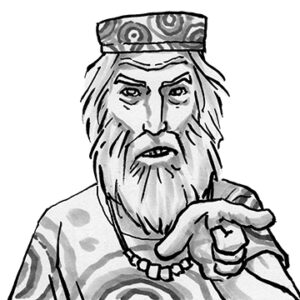
Quixote
This man carries optimism to a high art form. He tells fables to the local children that are woven with survival skills. A mystical scholar, he seems something like a wizard, but when there were libraries, he read everything. When the libraries were closed and recycled their books, he grabbed as much as he could carry, again and again. His language harkens back to an arcane time, but he is a source of truth and useful information. He is also the historian of the Cordon, its trials and tribulations, successes, and celebrations.
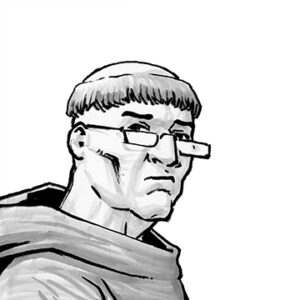
Father Ventre
With her father gone, Billi turns to Father Ventre to guide her conscience. He loves her, but he cannot save her. Billi is willing to be the last angel in hell to save those around her. Ventre has not lost faith in her. Billi has lost faith in the old way and has yet to find her new path.
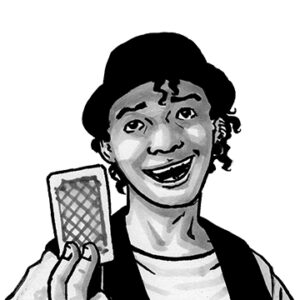
Randy
To succeed on the street you need to keep your eyes and ears open – and your mouth shut. Randy sees everything but he’ll only talk to a few.
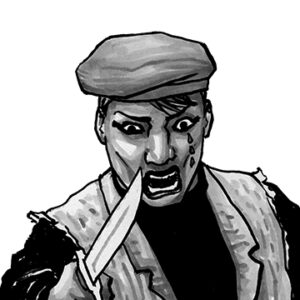
Rox
Head of the Deadmen gang, Rox is Billi’s opposite number. Collected behind her nihilistic vision, the deadmen are homeless teens trying to find power in something, even if that something is raw violence. Rox was raised by a mother who graduated from running dogfights to running kid fights. Rox was her best fighter. When she was strong enough, Rox deserted her mother and founded her own gang.
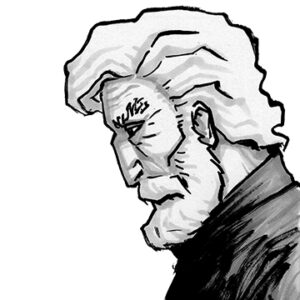
Eric Vey Hunder
Everything has a price. Vey Hunder buys low, sells high and doesn’t care for the desolation he leaves behind. He has no interest in the success of the companies he purchases, only the profit he can get out of stripping their resources.
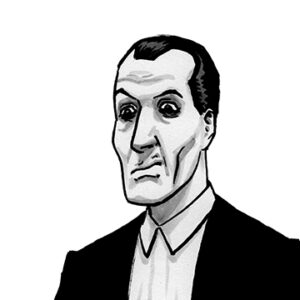
Cas Euchre
Raised in the Chadam household, by Chadam’s father, Euchre is a very slick, very charismatic, deeply envious man. When Billi arrived in their lives, Euchre sees his chances of inheriting the Chadam fortune fading away. From his point of view, something had to be done. Not a good thing, but something.
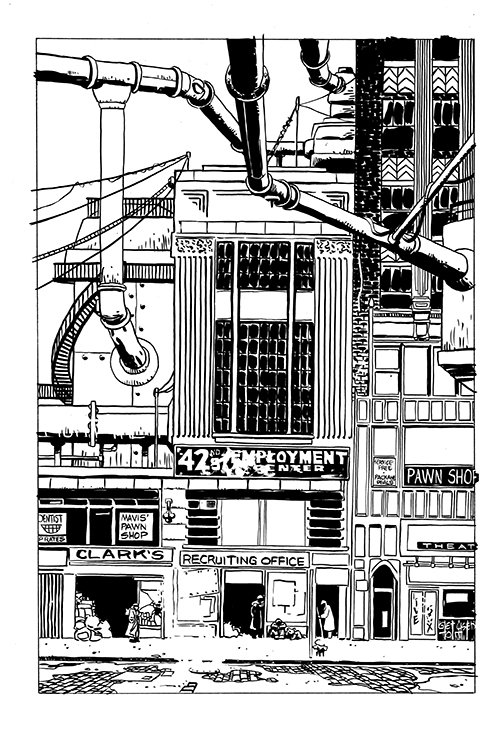
Sulter City
First, we stopped mining ore, and it was sitting, waiting at the loading docks. Trains stopped. Steel mills stopped. Factories stopped. Sulter was the last bastion of manufacturing in the American Heartland, held together by a considerable manufacturing concern, Chadam International.
Lacking seaports, most of America’s once-great Midwestern cities lay along the Mississippi River or the Saint Lawrence Seaway. Musicians, industrialists, and workers traveled these byways to find better lives and legacies.
At the mouth of three waterways, Sulter City was the crossroads of commerce, culture, and industry for generations. In her heyday, she was called “The Paris of the Midwest.” That was then, this is now.
Like all the great cities of the Rust Belt, Sulter’s glory days have faded. The city’s manufacturers have abandoned it for greener pastures. Only Chadam International has stayed.
As Billi swings through the abandoned buildings, unfinished skyscrapers, pet projects, and half-painted murals, she strives to recover her birthright and rebuild what others have left to rot.
